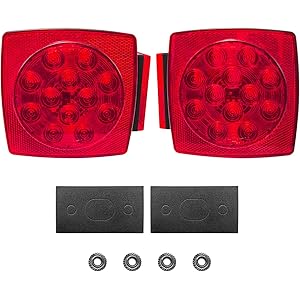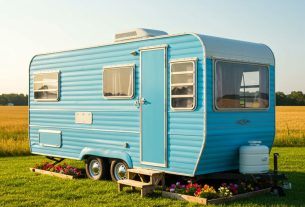As someone who has spent considerable time researching the housing market, I often find myself pondering the various options available for prospective homeowners. One option that frequently comes up is manufactured homes. Are they the perfect solution for affordable housing, or do they come with hidden pitfalls? In this article, I aim to explore the pros and cons of manufactured homes, share my insights, and help you discover the truth about this often-misunderstood housing option.
Understanding Manufactured Homes
Before diving into the pros and cons, it’s essential to understand what manufactured homes are. Unlike traditional homes built on-site, manufactured homes are prefabricated structures that are constructed in a factory and then transported to the homeowner’s desired location. This distinction is crucial because it directly influences both the benefits and drawbacks associated with these homes.
Defining Key Terms
To avoid confusion, let’s clarify some terms:
- Manufactured Homes: Built according to the federal HUD Code, which ensures certain safety and construction standards.
- Mobile Homes: An older term that typically refers to homes built before the HUD Code was enacted in 1976. Mobile homes are often seen as less desirable due to outdated standards.
- Modular Homes: Built in sections in a factory, these homes are transported and assembled on-site but are constructed to local building codes.
The Pros of Manufactured Homes
Now that we have a clear understanding of what manufactured homes are, let’s delve into the advantages they offer.
1. Affordability
One of the most significant advantages of manufactured homes is their affordability. According to the U.S. Census Bureau, the average cost of a manufactured home is approximately $80,000, significantly lower than the median price of a traditional single-family home, which hovers around $300,000 in many areas. This affordability allows individuals and families to enter the housing market without incurring substantial debt.
2. Quick Construction Time
Manufactured homes can be constructed in a matter of weeks, unlike traditional homes that can take months or even years to build. This speedy construction time can be a game-changer for those in urgent need of housing. For example, a family relocating for a job can quickly secure a home, minimizing the stress associated with housing transitions.
3. Energy Efficiency
Many modern manufactured homes are built with energy-efficient materials and appliances. According to the U.S. Department of Energy, newer manufactured homes can be up to 30% more energy-efficient than older models. This not only reduces utility bills but also lessens the environmental impact of the home.
4. Customization Options
Contrary to popular belief, manufactured homes come with a variety of customization options. Homebuyers can choose layouts, materials, and finishes that suit their tastes and needs. This flexibility allows individuals to create a living space that feels uniquely theirs.
5. Community Living
Many manufactured homes are located within well-planned communities that offer amenities such as parks, pools, and clubhouses. These communities foster a sense of belonging and often provide social opportunities that can be appealing, especially for families and retirees.
6. Lower Property Taxes
In many regions, manufactured homes are taxed differently than traditional homes. Often, they are considered personal property rather than real property, which can result in lower property taxes. This can be a significant financial benefit for homeowners looking to save on annual expenses.
The Cons of Manufactured Homes
While there are many advantages to manufactured homes, it’s essential to consider the potential drawbacks as well. Here, I highlight some of the most common concerns associated with these types of homes.
1. Depreciation
One of the most significant downsides to manufactured homes is that they tend to depreciate in value over time, unlike traditional homes, which usually appreciate. According to a report by the National Association of Home Builders, manufactured homes can lose value due to factors such as location, age, and market demand. This depreciation can make it challenging to sell the home in the future.
2. Financing Challenges
Securing financing for a manufactured home can be more complicated than obtaining a mortgage for a traditional home. Many lenders view manufactured homes as personal property rather than real estate, which can lead to higher interest rates and less favorable loan terms. Additionally, some lenders may require a larger down payment.
3. Zoning Restrictions
Depending on where you live, zoning laws may restrict where manufactured homes can be placed. Some communities may have stringent regulations that prevent manufactured homes from being located on certain properties. This can limit your options and complicate the process of finding a suitable location for your home.
4. Limited Resale Market
Because of the stigma that surrounds manufactured homes, the resale market can be limited. Many traditional homebuyers may be hesitant to purchase a manufactured home, leading to fewer offers and potentially lower selling prices. This limited market can make it difficult for homeowners to recoup their initial investment.
5. Perception and Stigma
There’s a lingering stigma associated with manufactured homes that can affect both buyers and sellers. Many people still associate these homes with low-income housing or inferior quality. This perception can hinder the acceptance of manufactured homes in certain neighborhoods and communities.
6. Maintenance and Repairs
While manufactured homes are constructed in a controlled environment, they are still subject to wear and tear. Some homeowners may find that specific components, such as roofs, may require more frequent maintenance and repairs compared to traditional homes. It’s crucial to factor in these ongoing costs when considering a manufactured home.
Case Studies: Real-Life Experiences
To provide a more comprehensive view of manufactured homes, I reached out to several individuals who have firsthand experience. Here are some insights based on their stories:
Case Study 1: The Smith Family
The Smith family purchased a manufactured home in a community in Florida. They were initially drawn to the affordability and quick construction time. However, they quickly realized that while the home fit their budget, they faced challenges with the resale value.
“When we tried to sell our home a few years later, we received significantly less than what we paid,” said Jenny Smith. “We didn’t expect it to depreciate so quickly.”
Case Study 2: Mark Johnson
Mark Johnson, a retiree, moved into a manufactured home community in Arizona. He enjoyed the amenities and sense of community but faced challenges with financing.
“I had to shop around for lenders because many wouldn’t approve my loan for a manufactured home. It was frustrating,” Mark shared. “But once I settled in, I loved the lifestyle.”
Case Study 3: The Torres Family
The Torres family opted for a manufactured home due to its energy efficiency. They found that their utility bills significantly decreased after moving in.
“We love our home! The energy efficiency is a huge plus, and our monthly expenses are much lower than they were in our previous home,” said Maria Torres.
Making the Right Choice
After weighing the pros and cons, the decision to purchase a manufactured home ultimately depends on individual circumstances. Here are a few factors to consider:
- Budget: Assess your financial situation and determine if a manufactured home fits within your budget.
- Location: Research zoning laws in your desired area to ensure manufactured homes are allowed.
- Long-Term Plans: Consider your long-term goals. Are you looking for a starter home, or do you plan to settle down for the long haul?
- Community: Investigate the community where you plan to live. Does it offer the amenities and social opportunities you desire?
- Resale Potential: Think about the potential resale value of the home. Will you be able to sell it in the future if needed?
Conclusion: The Truth About Manufactured Homes
Manufactured homes can offer a viable housing solution for many individuals and families seeking affordable options. With their quick construction, energy efficiency, and customization possibilities, they can be a fantastic choice for those willing to navigate the challenges associated with financing and resale value.
However, it is essential to weigh both the pros and cons carefully. Understanding the nuances of manufactured homes can help you make an informed decision that aligns with your lifestyle and financial goals. In the end, the right choice will depend on your unique circumstances and priorities.
FAQ
1. Are manufactured homes safe?
Yes, manufactured homes built after the implementation of HUD standards in 1976 are required to meet strict safety and construction guidelines. However, as with any home, regular maintenance is essential to ensure safety and longevity.
2. Can I get a mortgage for a manufactured home?
Yes, many lenders offer mortgages for manufactured homes, though the terms may differ from traditional mortgages. It’s important to shop around to find the best financing options.
3. Do manufactured homes appreciate in value?
Generally, manufactured homes tend to depreciate in value over time, although some factors, such as location and market demand, can influence this. It’s crucial to consider this when making a purchase.
4. Can I customize my manufactured home?
Yes, many manufacturers offer various options for customization, including layout, materials, and finishes. This flexibility allows you to design a home that meets your needs and preferences.
Thank you for reading! If you found this article informative, please consider signing up for our newsletter for more insights and tips. Don’t forget to share this with your friends and on social media!
fouwick LED Trailer Light, License plate light, 12V Easy Install Waterproof for Under 80 Inch Boat utility Trailer Trucks Campers RVs Snowmobiles DOT Compliant (Light only)
$15.90 (as of November 16, 2025 07:53 GMT -03:00 - More infoProduct prices and availability are accurate as of the date/time indicated and are subject to change. Any price and availability information displayed on [relevant Amazon Site(s), as applicable] at the time of purchase will apply to the purchase of this product.)
Sign up for our newsletter and stay up to date with exclusive news
that can transform your routine!





